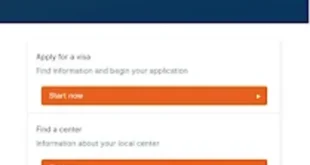New Regulation for Bulk International Text Messages in Nigeria
The Nigerian Communications Commission (NCC) has introduced a new regulation that requires businesses sending bulk international text messages—known as Application-to-Person (A2P) messages—to obtain a N10 million license. This move is aimed at addressing several critical issues, including fraud, spam, and the need to ensure that revenue from these messages remains within the country’s economy.
A2P messages are those sent automatically by applications to mobile phones. These include notifications from banks, online retailers, hospitals, and even political campaigns. The NCC has highlighted that the current system for handling these messages has been poorly regulated, leading to an increase in fraudulent activities, spam, and other illegal operations.
“The International SMS Service Ecosystem in Nigeria has not been fully brought under regulatory control,” the NCC stated. “It has been observed that the excessive use of the Short Message Service has led to fraud, spam, and illegal activities.”
To address these concerns, the NCC is establishing a central platform or gateway through which all international bulk text messages must pass. This will allow the commission to monitor messages in real time, ensure that proper fees are paid, and prevent money from flowing out of the country. The platform will also help enforce data protection standards and promote transparency in the sector.
Service providers must meet strict requirements, including robust data protection measures, spam filters, and message encryption. They are also required to collaborate with local mobile networks and ensure that all messages originate from verified senders. Any message without a valid sender ID will be blocked and not delivered.
To protect users from unwanted messages, the new rules require companies to obtain clear permission before sending promotional content. Individuals must also have the option to opt out of receiving such messages. Companies are now required to retain records of all messages for a minimum of six months and clearly state all charges involved. The NCC emphasized that fees for help requests, cancellations, or service information must be transparent, with no hidden charges.
The NCC has also outlined potential penalties for non-compliance. Companies found violating the rules may face fines, suspension, or even the revocation of their license. Offenses such as charging illegal tariffs, ignoring security requirements, or evading taxes will be strictly penalized.
These regulations align with the Nigerian Data Protection Act 2023 and support the federal government’s broader goals of enhancing cybersecurity and regulating the digital landscape. The framework will be reviewed periodically to keep pace with technological advancements and market trends.
A Historic Move for Mobile Virtual Network Operators
In another significant development, the NCC assigned a mobile number series to Vitel Wireless, making it the first Mobile Virtual Network Operator (MVNO) in Nigeria. The assignment of the 0712 mobile number series marks a turning point in the country’s telecom industry.
This move reflects Nigeria’s growing adoption of innovative and affordable telecom solutions. As an MVNO, Vitel Wireless will operate without owning its own network infrastructure, instead leveraging the networks of existing mobile operators. This model allows for greater competition and more choices for consumers.
The NCC’s decision to issue licenses to multiple providers aims to foster healthy competition in the market. However, the commission may limit the issuance of new licenses if necessary. Only companies that demonstrate the ability to prevent fraud and safely deliver messages will be allowed to operate. They must also regularly report their message traffic and financial details to the NCC.
With these new regulations and developments, the Nigerian telecom sector is taking important steps toward a more secure, transparent, and competitive environment. The focus on data protection, fraud prevention, and economic benefits ensures that the industry continues to evolve in line with global standards.
 Info Malang Raya Its All About World News
Info Malang Raya Its All About World News




